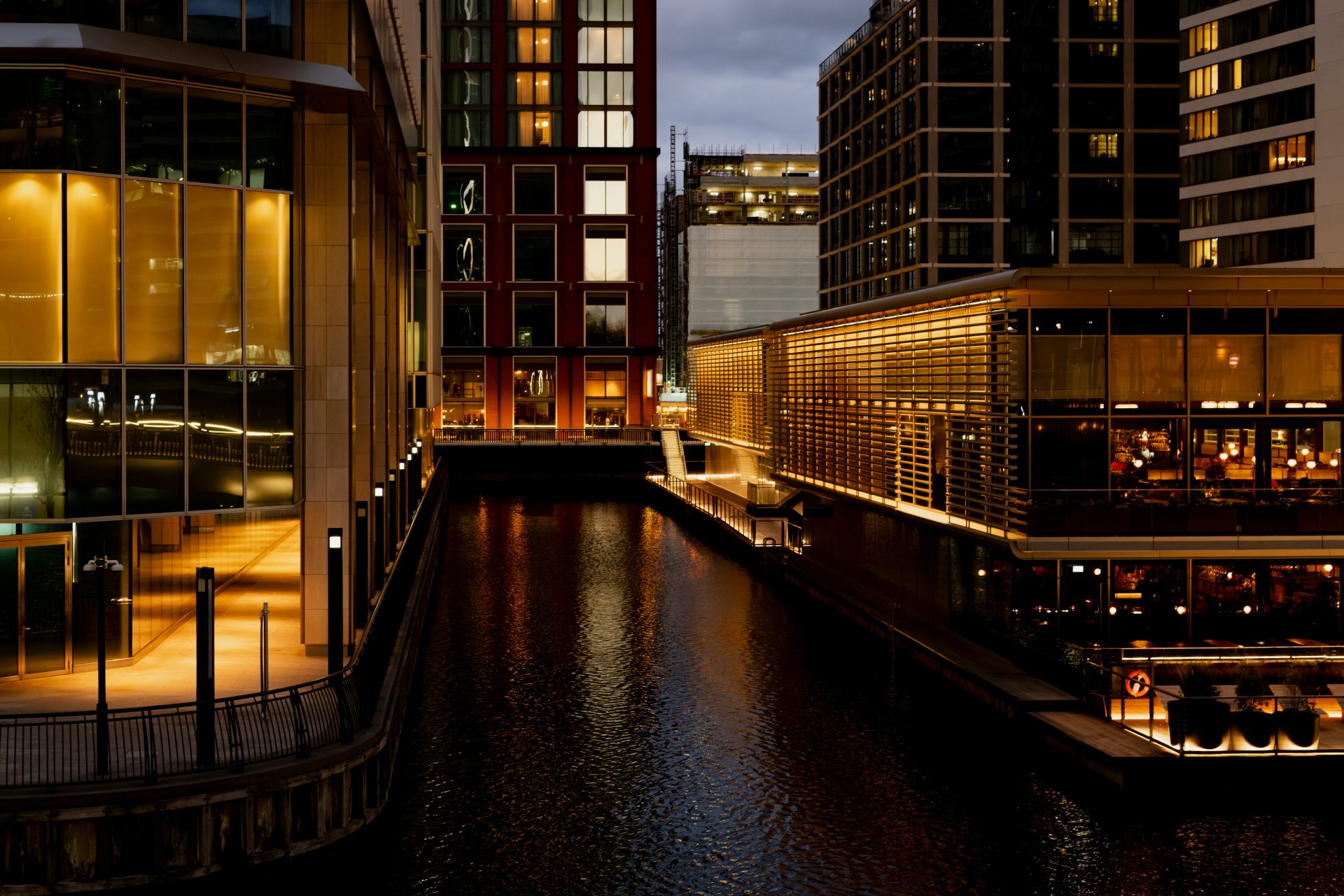
Abu Dhabi Off-Plan Real Estate: 2025 Market Insights
Abu Dhabi’s property market in 2025 is in a strong position, with demand for new homes supported by large-scale developments, lifestyle upgrades, and a stable legal framework. Off-plan sales — where buyers purchase before construction is complete — remain a major part of this growth story.
Prices and What They Mean
According to market reports, the average price for off-plan properties in Abu Dhabi now stands at around AED 1,127 per sq ft (about £240), compared with AED 1,350 (about £283) last year. Ready-to-move homes average AED 1,086 per sq ft (about £232), leaving a small gap between the two.
Although average prices have eased slightly compared with last year, this adjustment reflects a maturing market rather than weakening interest. Rental returns remain competitive, and in many areas demand for new homes is absorbing supply quickly, keeping yields attractive for investors.
Why Off-Plan Is Attractive to Buyers and Investors
Developers frequently offer staged payment schedules, where only a portion of the price is paid during construction and the rest after handover. In some cases, buyers have several years post-handover to complete the final payments. This makes it easier to secure a property in a prime location without committing the full amount upfront, freeing up capital for other investments or personal use.
Key advantages for investors include:
- Flexible payment terms, including post-handover options, reducing upfront costs.
- Freehold ownership for foreign buyers in high-demand zones like Yas Island, Saadiyat Island, and Al Reem Island.
- No property tax, improving net returns compared to many global markets.
- Strong rental yields, often between 6% and 8%, with performance in some segments exceeding that of cities like London or New York.
- Ongoing large-scale projects — from cultural hubs to leisure attractions — boosting both demand and long-term capital growth.
Large-scale cultural, leisure, and infrastructure projects are driving both demand and long-term capital growth. This combination of legal clarity, lifestyle quality, and steady returns makes buying off-plan in Abu Dhabi a compelling choice for both residents and international investors.
Standout Areas for 2025
Yas Island
This entertainment hub is known for attractions like Ferrari World, Yas Marina Circuit, and Warner Bros World. The announcement of a Disneyland park has added another draw for families and tourists. Residential areas here combine waterfront views, modern architecture, and access to leisure facilities.
For investors: Strong tourism and leisure activity support short-term rental demand, while limited waterfront supply helps maintain long-term value.
Saadiyat Island
A cultural and natural highlight of Abu Dhabi, Saadiyat is home to the Louvre Abu Dhabi and will soon host the Guggenheim Museum and Zayed National Museum. It also offers some of the emirate’s most scenic beaches and nature reserves, making it appealing to buyers seeking both luxury and tranquillity.
For investors: Its high-end positioning attracts affluent tenants and buyers, ensuring rental stability and potential for capital appreciation as cultural infrastructure grows.
Al Reem Island
A fast-developing urban district close to the city centre, Al Reem offers high-rise apartments, waterfront promenades, and retail spaces. It’s popular with professionals and investors thanks to steady rental yields and ongoing infrastructure improvements.
For investors: Consistent rental demand from working professionals provides dependable yields, while upcoming transport and retail projects add value over time.
Zayed City
Planned as a major government and residential hub, Zayed City is set to accommodate over 370,000 people and provide efficient transport links across the emirate. Its large-scale masterplan makes it one of the most significant long-term growth areas.
For investors: Early entry into a masterplanned capital district offers the potential for long-term price growth as infrastructure and amenities are completed.
A Market Shaped for Growth
Abu Dhabi’s real estate sector is supported by its wider economic plans, including Abu Dhabi Vision 2030, which focuses on diversification and sustainable development. Major infrastructure projects such as the Etihad Rail network, new highways, and waterfront expansions are improving connectivity and adding value to residential communities. Lifestyle upgrades — from cultural landmarks to parks and leisure facilities — are helping create neighbourhoods designed for long-term liveability.
FAQs
Can foreigners buy property in Abu Dhabi?
Yes. Foreign buyers can buy freehold property in designated areas such as Yas Island, Saadiyat Island, Al Reem Island, and parts of Al Raha Beach. These zones are open to full ownership with no restrictions on resale or leasing.
What’s the main advantage of buying off-plan?
Lower initial payments and flexible payment plans, along with access to new designs, locations, and amenities before they are available in the ready market.
Which areas are best for rental returns?
Al Reef, Al Reem Island, and Yas Island are among the top performers, with returns in some segments reaching over 9% for apartments. These areas benefit from strong tenant demand and established community amenities.
How is the market expected to perform in 2026?
While no exact figures are available yet, analysts expect the factors driving growth in 2025 — such as a healthy off-plan pipeline, major infrastructure completion, and stable yields — to carry into 2026. With projects like Disneyland Abu Dhabi and new waterfront communities progressing, demand is projected to remain strong across both local and expatriate buyer segments.
Can property investors get residency in Abu Dhabi?
Yes. Buying property worth at least AED 2 million (about £420,000) can qualify investors for a 10‑year Golden Visa. This residency option allows holders to sponsor their spouse, children (sons up to 25, daughters of any age), parents, and even domestic staff.
Are there taxes or extra costs when buying property in Abu Dhabi?
There’s no property tax in Abu Dhabi. Buyers pay a 2% registration fee to the Department of Municipalities and Transport (DMT), plus any applicable admin and maintenance fees.



 Bitcoin
Bitcoin  Ethereum
Ethereum  Tether
Tether  XRP
XRP  USDC
USDC  Solana
Solana  TRON
TRON  Lido Staked Ether
Lido Staked Ether  Cardano
Cardano  Avalanche
Avalanche  Toncoin
Toncoin